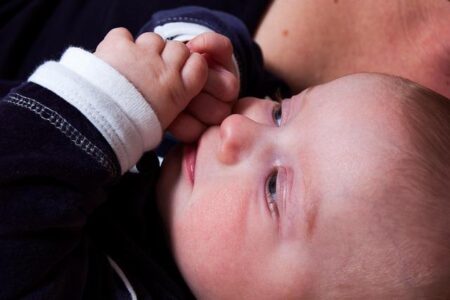In a meaningful step towards improving the lives of the youngest and most vulnerable members of society, UNICEF partnered with the Government of Sierra Leone to launch a comprehensive Situation Analysis on Children and Adolescents report. This initiative provides a critical examination of the current state of children and adolescents in the country, addressing key issues such as health care, education, protection, and socio-economic challenges. By presenting a detailed assessment of the rights and well-being of Sierra Leone’s youth, the report aims to inform policymakers and stakeholders, facilitating evidence-based decision-making to foster a brighter future for the nation’s children. This collaborative effort underscores the commitment of both UNICEF and the Sierra Leonean government to prioritize the needs of children and adolescents as the bedrock for sustainable growth and societal progress.
UNICEF and Government Collaboration for Child Welfare in Sierra Leone
In a significant move to enhance child welfare, UNICEF has partnered with the government of Sierra Leone to unveil a comprehensive situation analysis report focused on children and adolescents. This initiative aims to assess various aspects of children’s lives, enabling stakeholders to identify critical issues and develop targeted interventions. The collaboration underscores the commitment of both entities to improve the living conditions and future prospects of the younger population,ensuring that the voices of children and adolescents are prioritized in national policies.
The report highlights several key areas requiring urgent attention:
- Health Services: Monitoring and improving access to healthcare, nutrition, and immunization.
- Education: Addressing barriers to education, including school drop-out rates and quality of education.
- Protection: Safeguarding vulnerable children from violence, exploitation, and abuse.
- Social Inclusion: Promoting participation and engagement of children in community decisions.
To facilitate informed decision-making, a structured data table was created, summarizing the most pressing challenges faced by children in Sierra Leone:
| Challenge | impact | Recommended Action |
|---|---|---|
| Malnutrition | High cases of stunted growth | Enhance nutrition programs |
| Access to Education | Increased drop-out rates | Invest in educational infrastructure |
| Child Protection | Rise in abuse cases | Strengthen legal frameworks |

Key Findings of the situation Analysis on Children and Adolescents
The comprehensive analysis reveals alarming trends affecting children and adolescents in Sierra Leone, highlighting critical areas that require immediate attention. Key issues identified include:
- Education Access: A significant number of children are out of school, with barriers such as poverty and inadequate infrastructure hindering enrollment.
- Health Disparities: Many children face challenges accessing basic healthcare services, leading to preventable diseases and high mortality rates.
- Child Protection: Reports of violence, exploitation, and abuse against children remain distressingly high, underscoring the need for effective protective measures.
Along with these pressing issues, the analysis also underscores the importance of fostering resilience among young people. The findings suggest that initiatives aimed at empowering adolescents through skills development and mental health support can significantly improve their well-being and future prospects. The table below outlines the targeted strategies recommended in the report:
| Strategy | Expected Outcome |
|---|---|
| Community Education programs | Increased school enrollment and retention rates. |
| Health Outreach Initiatives | Improved access to vaccinations and healthcare. |
| Child Protection Campaigns | Strengthened legal frameworks and community awareness. |

Highlighting the challenges Facing Sierra Leonean Youth
The challenges facing youth in Sierra Leone are multifaceted and deeply rooted in the country’s socio-economic landscape.High unemployment rates remain a pressing issue, with a significant percentage of young people struggling to find stable and decent work. Many are caught in informal employment sectors that lack basic labor protections, leaving them vulnerable to exploitation and economic instability. Additionally, access to quality education continues to be a critical barrier, with inadequate infrastructure and resources, particularly in rural areas, limiting opportunities for skill development and personal growth.
Health issues are also a major concern, as youth grapple with inadequate access to healthcare services, teen pregnancy, and the rising prevalence of mental health challenges. The situation is exacerbated by limited recreational opportunities, which hinders social development and community engagement. Moreover, the impact of political instability and economic downturns has left many young people feeling disillusioned and disenfranchised. To effectively address these issues, a concerted effort that involves policy reforms, educational initiatives, and community engagement is essential to empower Sierra leonean youth and create pathways for a brighter future.

Recommendations for Policy Changes and Increased Investment
In light of the findings from the recent situation analysis, it is crucial for policymakers in Sierra Leone to prioritize reforms that directly address the multifaceted challenges faced by children and adolescents. Key recommendations include:
- Strengthening legal frameworks: Updating existing laws to protect children from violence, abuse, and neglect while ensuring proper implementation and enforcement mechanisms.
- Enhancing educational resources: Increasing investment in primary and secondary education to improve access, quality, and retention, particularly in rural areas.
- Improving healthcare access: Expanding healthcare services to ensure all children and adolescents get timely medical attention, including mental health support.
- Promoting social protection programs: Developing targeted initiatives aimed at reducing poverty and improving the well-being of vulnerable children and families.
Moreover, increased financial commitment from both the government and international partners is essential to support these initiatives. Specific areas of investment should include:
| Investment Area | Proposed Allocation |
|---|---|
| Educational Infrastructure | 20% of total budget |
| Health services | 25% of total budget |
| Social Welfare Programs | 15% of total budget |
| Child Protection enforcement | 10% of total budget |
By channeling resources effectively and establishing a cooperative framework among stakeholders,Sierra Leone can make significant strides in enhancing the lives of its children and adolescents.

Voices from the Community: Perspectives on Child and Adolescent Needs
in light of the recent launch of the Comprehensive Situation Analysis on Children and Adolescents report by UNICEF and the government of Sierra Leone, local voices are resonating with urgent calls for action. Parents, educators, and community leaders have expressed a shared concern about the multifaceted challenges facing the youth. They emphasize the necessity of addressing not only basic needs but also the emotional and psychological aspects essential for healthy development. Key perspectives from the community include:
- The importance of reliable access to education despite challenging circumstances.
- The need for mental health resources and support systems for adolescents.
- Actionable strategies to tackle malnutrition and health disparities.
moreover, community stakeholders are advocating for collaborative efforts to ensure that the voices of children and adolescents are not only heard but also shaped into policies that benefit their holistic development. In response to the findings of the report, several recommendations have emerged:
- Enhancing community engagement programs that empower young people.
- Implementing awareness campaigns focused on health and reproductive rights.
- Developing safe spaces for youth discussions and initiatives.

A Vision for the Future: Strategies for Sustainable Development in Sierra Leone
Sierra Leone stands at a pivotal juncture, where the formulation and implementation of sustainable development strategies can reshape the trajectory of its future, especially for its younger generations. Central to these strategies is the necessity to foster multi-sector collaboration, engaging local communities, governmental agencies, and international organizations. This collaboration can be structured around key areas such as:
- Education: enhancing access to quality education for all children, including those in remote areas.
- Health: Improving healthcare systems to ensure the well-being of children and adolescents.
- Economic Opportunities: Creating job prospects and vocational training tailored to the needs of youth.
- Environmental Sustainability: Promoting initiatives that protect natural resources while educating the youth on climate change.
- Community Engagement: Empowering local voices to shape policies that directly impact their lives.
Incorporating these strategies can yield considerable long-term benefits, as evidenced by recent reports. Through targeted interventions and comprehensive analyses, stakeholders can identify specific needs and gaps in current policies. The table below highlights crucial indicators that can be monitored to measure progress:
| Indicator | Current Status | Target by 2030 |
|---|---|---|
| Children in primary school | 70% | 100% |
| Child mortality rate | 110 per 1,000 live births | 65 per 1,000 live births |
| Access to clean water | 60% | 100% |

Final Thoughts
the launch of the Comprehensive Situation Analysis on children and Adolescents Report by UNICEF in collaboration with the Government of Sierra Leone marks a pivotal step towards addressing the pressing needs and challenges faced by the nation’s youth. This comprehensive assessment not only highlights critical areas requiring immediate attention but also serves as a guiding framework for policymakers and stakeholders committed to improving the lives of children and adolescents in Sierra Leone. As the country strives to implement the recommendations outlined in the report,the focus remains on fostering a supportive habitat that prioritizes education,health,and protection for its young population. The collaboration between UNICEF and the Sierra Leonean government underscores the importance of collective action in creating sustainable solutions that empower the next generation.Moving forward, it will be essential for all sectors of society to engage in this crucial dialog, ensuring that every child has the opportunity to thrive and contribute to a more equitable future.







